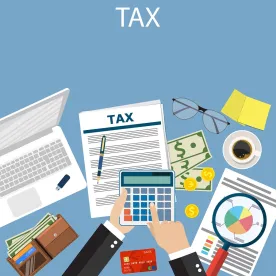Today, US Senators John Thune (R-SD) and Ron Wyden (D-OR) filed the Digital Goods and Services Tax Fairness Act of 2018 (S.3581) for reintroduction in the United States Senate. A companion version is expected to be reintroduced tomorrow in the House of Representatives by Representatives Lamar Smith (R-TX) and Steve Cohen (D-TN). This bill, if enacted, would establish a national framework for how states apply their sales and use tax systems to sales and uses of digital goods and digital services. The bill would resolve current uncertainty regarding which state has the right to tax certain sales and whether a state has the right to tax the sale of a digital good or digital service. The bill also would establish uniform, destination-based, sourcing rules for sales of such products and services.
Sales of digital goods and services are highly mobile transactions. A customer could have a billing address in one state and download a digital good from the seller’s server in another state while the customer is traveling in a third state. Whether such a transaction has sufficient attributes in any one of the three states to give rise to the right to tax the transaction by any one of them is open to question. Assuming one of the states has the right to tax the sale, there is a question as to which state that might be. The bill would clearly specify that one of the states has the right to tax the sale and clearly delineate which state has such taxing rights.
Generally, the bill would limit the right to impose a sales or use with respect to transactions involving “covered electronic goods and services” (a “covered electronic good or service” include digital goods, digital services, audio and video programming services and VoIP services) to the state or locality that encompasses the “customer’s tax address.” The “customer’s tax address” is defined using a sourcing hierarchy that is based on varying levels of information the seller has with respect to the customer’s location.
The sourcing hierarchy generally follows the sourcing rules of the Streamlined Sales and Use Tax Agreement, which focuses on either where the customer is at the time of the transaction or the customer’s billing address. One difference with the SSUTA is worth noting. The final rung of the hierarchy applies when the seller is without any information regarding the purchaser’s location. Consider the case where the customer pays for a digital good or service using a payment intermediary, such as PayPal, where no customer information is provided to the seller. The sourcing rule in the bill would allow the seller to source such a sale to one of three locations: (1) the state where the seller has its headquarters, (2) the state where the seller has the most employees or (3) a state from which the seller makes the digital good or service available for download, provided the seller uses the same location for all of its sales that fall into this category.
The bill also contains definitions of digital goods and digital services that clearly demark the two types of products. Most state sales taxes are imposed on sale of tangible personal property and certain enumerated services. Most state sales tax imposition statutes are not broad enough to impose tax on sales of many digital services. The revenue departments in some states take an aggressive approach by interpreting the state’s imposition on sales of tangible personal property as applying to sales of some digital services. The definition in the bill of “digital good” requires that there be “delivery to the customer of a complete copy” of the good together with the right to use the good “permanently or for a specified period.” This “complete copy” requirement in the definition of “digital good” should result in many digital services, such as cloud computing, being characterized as non-taxable digital services, depending on state law.
Practice Note: While the prospects for passage of any legislation are uncertain in the current environment, we believe these bills could move during the upcoming lame duck session of Congress. The bills have no opposition that we are aware of and the National Conference of State Legislatures approved a resolution supporting them. The bills could be folded into an end of the year package of non-controversial bills that could pass by unanimous consent.






 />i
/>i
